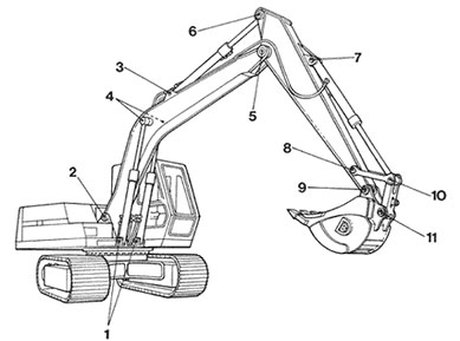

They also have more grip and with the larger hole size, do well on jib sheets. These aren’t 100% rust-proof, but do rust a lot less than the wooden ones with the regular spring. Plastic clothespin with galvanized spring. Lee Valley Tools - lower unit price but high shipping.
#Large close pins for free#
Amazon - a better deal if you have Amazon Prime (click to get a free 30-day trial) or are buying something else to qualify for free shipping.but that’s less than the cost of losing a good piece of clothing or towel overboard. The drawback is that they cost about $1 per clothespin. They also grip much more tightly than the “normal” clothespin. These 100% stainless clothespins won’t rust or stain clothes, and they can be washed easily to get the dirt off them. The first one eliminates most of the problems, but isn’t cheap the others each still have some problems. None of the following solutions is perfect, I’ll admit. But jib sheets are larger than normal clothesline, and most pins don’t hold at all well.Īnd number three, the wood gets dirty over time and also stains your nice clean items. On a sailboat, the lifelines are the first place that clothes get hung and the jib sheets are typically second. At the best, clothing falls on deck and has to be rehung worse is falling into salt water and needing to be re-washed (using more precious water) and worst is going overboard, sinking and not being found. Number two, most don’t grip the clothing particularly tightly and can pop off. And that creates two problems - rust stains on clothing and clothespins that break. Number one, the little spring in it is steel which quickly rusts in salt air. Plus, the black/orange buckles match up perfectly with the Rockgeist tag on the hip pack, which is just dumb luck.The lowly clothespin has a few problems when you take it on a boat. They hold the tension of the webbing tight, they don’t loosen, and when adjusting the length of the buckle or in this case the compression straps on the sides of my hip pack, they don’t dump all the webbing immediately like plastic buckles tend to do. I’ve been out on a couple of rides since installing the buckles, but everything from my original review of the 3/4″ version remains true. When it’s done right, a tiny ring of the pin falls off the from the side the pin is being pushed into, letting you know the job is complete.

The pins fall into place with very little force, but I’ve found that a little extra push is needed to have them perfectly seated. We didn’t have large enough Knipex pliers on hand, so we used a smooth-sided bench vice to press the pins into place with no issues.
#Large close pins install#
I found the install to be a little less awkward than the 3/4″ version, which is not a huge surprise. With some help from Walt and Dan at Tumbleweed Bikes headquarters in Boise, I clipped out the standard plastic ladder lock buckles on my Rockgeist Big Dumpling hip pack and replaced them with the Austere Pin Ladder Locks. This heavy-duty gear is often appealing to the same folks who are interested in their gear lasting.” And 3/4″ webbing is super strong, holding hundreds of pounds. As it turns out, this is actually due to the buckles, as most 1″ buckles are built much stronger. Interestingly, this is mostly because there is a perception that any heavy-duty application needs 1″ webbing. Uriel explains, “We made the 1″ version of the Pin Ladder Lock because it turns out that a lot of gear is designed with 1″ webbing. The first Pin Ladder Lock was designed for 3/4″ webbing, but according to Uriel, they were inundated with requests for a 1″ version as soon as it was released. Earlier this year, they launched their new Pin Ladder Lock buckle, replacing standard plastic ladder locks with a beautifully machined body and your choice of stainless steel or titanium pins. Austere’s founder Uriel Eisen launched the brand in 2021 with a trusty cam buckle, and since then, we’ve started to see them appear on bikepacking bags and other equipment we love. Washington-based Austere Manufacturing is on a mission to replace all failure-prone plastic buckles with fancy, ultra-reliable CNC machined alternatives.


 0 kommentar(er)
0 kommentar(er)
